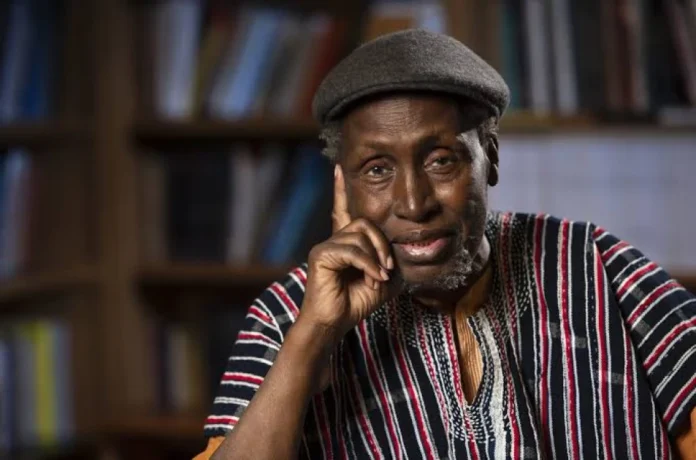Kenya is in mourning following the passing of celebrated author, playwright, and scholar Prof. Ngugi wa Thiong’o, who died on Wednesday morning at the age of 87. President William Ruto led tributes, describing Ngugi as a “towering giant of Kenyan letters” and a fearless voice in the pursuit of justice and decolonization of African literature.
In a heartfelt message posted on his X (formerly Twitter) handle, President Ruto paid homage to Ngugi’s intellectual legacy. “I have learnt with sadness about the death of Kenya’s beloved teacher, writer, playwright, and public intellectual, Prof Ngugi wa Thiong’o. The towering giant of Kenyan letters has put down his pen for the final time,” he wrote.
“Always courageous,” Ruto continued, “he made an indelible impact on how we think about our independence, social justice, as well as the uses and abuses of political and economic power.” He hailed Ngugi’s ability to speak truth to power in a way that earned him both admiration and respectful dissent.
Deputy President Kithure Kindiki also mourned the loss, noting that Ngugi was “admired by many across the globe,” including those who disagreed with his views. “The world’s academia is left very much the poorer without this great son of Kenya,” Kindiki said.
Ngugi’s daughter, Wanjiku wa Thiong’o, announced her father’s passing through a Facebook post, saying, “It is with a heavy heart that we announce the passing of our dad, Ngugi wa Thiong’o, this Wednesday morning. He lived a full life, fought a good fight.”
Born in 1938, Ngugi wa Thiong’o rose to international prominence with groundbreaking works such as Weep Not, Child, A Grain of Wheat, and Petals of Blood—novels that addressed the legacy of colonialism and post-independence struggles in Kenya. His play Ngaahika Ndeenda (I Will Marry When I Want) led to his detention without trial in 1977. Undeterred, Ngugi began writing in his native Gikuyu, asserting the importance of African languages in post-colonial identity, with works like Devil on the Cross (Caitaani Mũtharaba-Inĩ).
Ngugi’s lifelong commitment to cultural reclamation, political truth, and literary excellence earned him global acclaim, cementing his status as one of Africa’s most influential intellectuals.
Tributes continue to pour in from across the world, honouring a man whose words inspired generations and whose fearless voice changed the course of African literature.
Written By Rodney Mbua



















